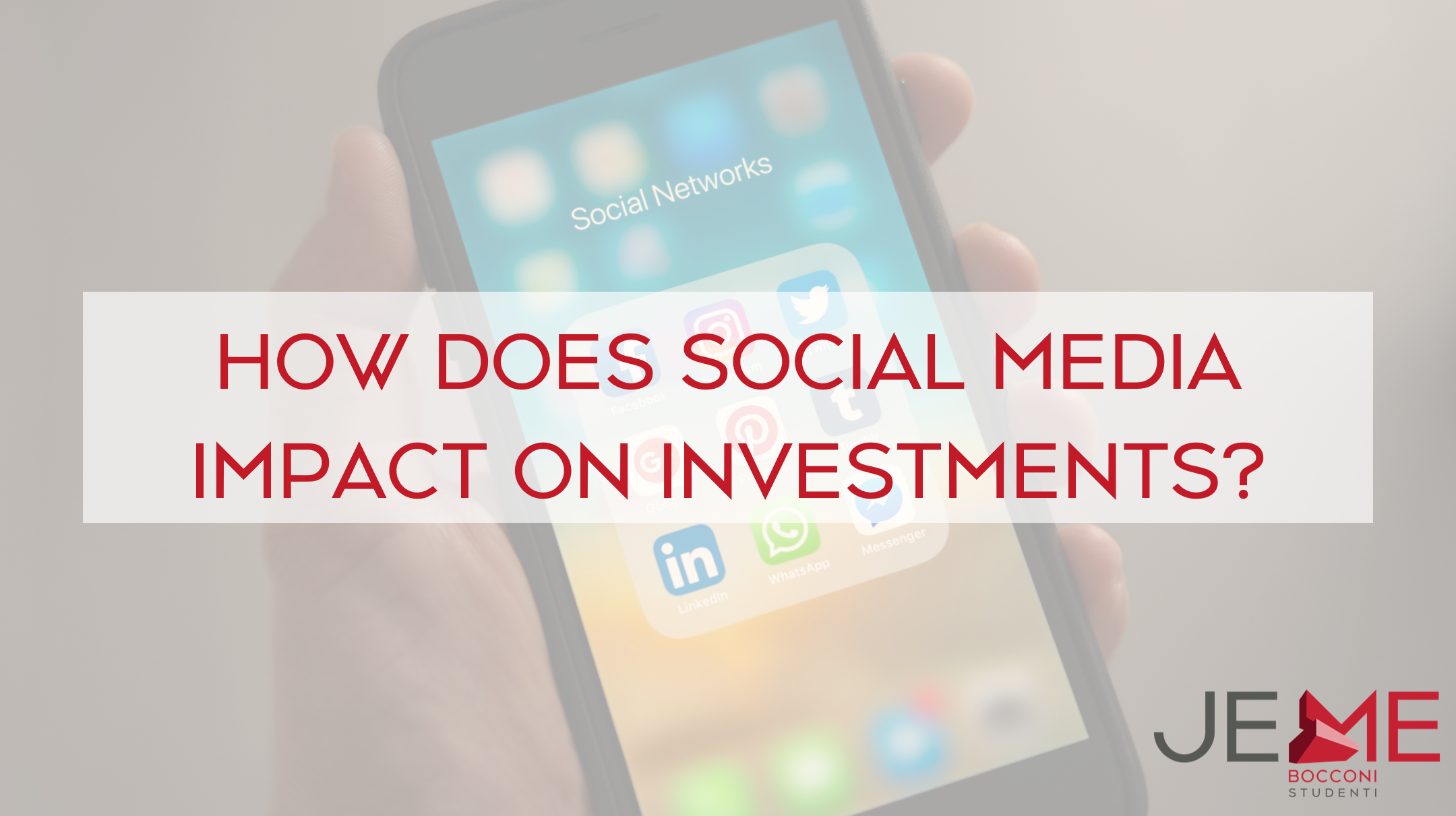“Social contagion is a well-documented phenomenon: people adopt others’ behaviour, from smoking to product purchases.“1 Word-of-mouth communication is efficient for trading decisions of both individual investors and financial institutions.
Timing is the key to financial investments. With the possibility of reaching out to real-time information by virtue of social media’s rise, many investors have decided to rely on digital platforms to inform financial decisions. According to a study conducted by Greenwich associates2, almost 80% of institutional investors use social media as part of their regular workflow. Approximately 30% of these investors declared that information obtained through social media has directly influenced an investment recommendation decision in 2016. In the following years, Brunswick’s annual Digital Investor Survey has analyzed social media impacts on investments for the past ten years, examining how buy-side investors and worldwide sell-side analysts consume online information. In general, trust in digital resources exhibited an incremental trend in 2020 ranging from 10% and 20% compared to 2019 data. Active investors utilize social media with the aim of understanding current trends and market sentiments. In 2020 the investors that are currently using social media sources to make investment decisions increased by 40%, reaching approximately 75%.
Influencer marketing tools are widespread globally, not only for fashion or beauty purposes, but they are even more for significant finance. A study by eMarketer3 has demonstrated that 44.7% of U.S. internet users, ageing from 18 to 34 years, have followed online influencers’ recommendation in purchasing a product or service. Youngsters are keener on social media usage. Concomitantly, such data is worrisome, as young investors engage in “unsuitable” high-risk investing given by the investment apps. The U.S. Securities and Exchange Commission (SEC) has recently warned investors of the significant risk of short-term investments based on social media.
Investors are deeply influenced by the information shared on social media because it generates sentiments and reactions, ultimately having an impact on international stock market indices’ trends. One of the most used apps by financial investors is undoubtedly Twitter, which recorded significant growth when the COVID-19 pandemic sparked. Twitter posts remarkably influence financial indices because there is an essential effect of sentiments a few days after the announcement. In this regard, an appealing case can be found in Bitcoin stock price in January 2021, which skyrocketed 20%4 after Elon Musk, Tesla CEO, has added in his bio #bitcoin followed by his tweet. Moreover, the stock price was heavily influenced on several occasions by the entrepreneur and his tweeting habits. Another unique platform is Reddit which at the beginning of 2021 was intensively discussed following the GameStop phenomenon. Its stock price surge emphasized the presence of herd behavior on social media, which provoked the retail investor bull runs through the hype and social contagion. Therefore, the GameStop saga presented many new challenges and implications for the traditional financial market and regulatory authorities. One of these is undoubtedly the impact that social media has on conventional investments.
Sources
Financial Times, “How herd behaviour drives action on r/WallStreetBets”
Greenwich, Social Media Influencing Investment Decisions at Global Institution”
eMarketer, “US Internet Users Who Have Ever Bought aProduct/Service Recommended by …”
CNBC, “Bitcoin spikes 20% after Elon Musk adds #bitcoin to his Twitter bio”

